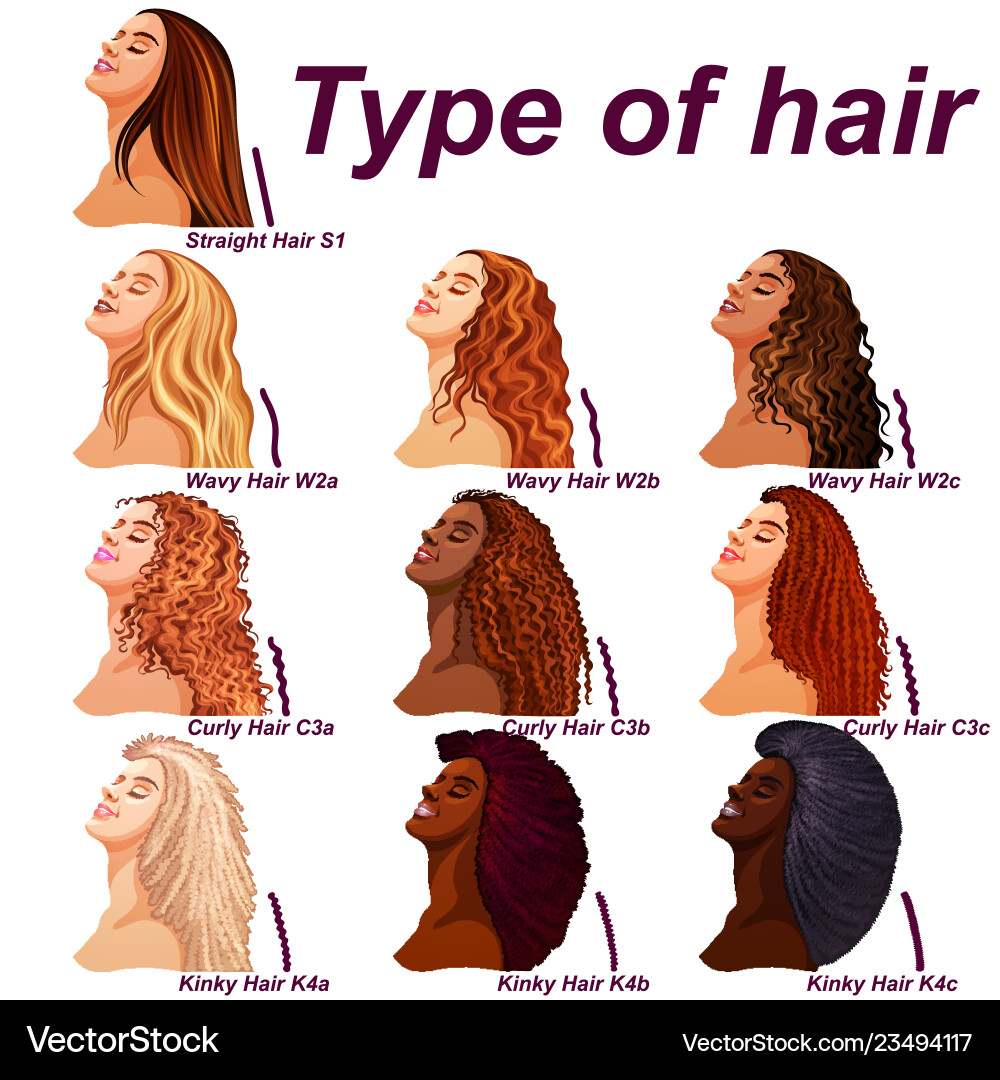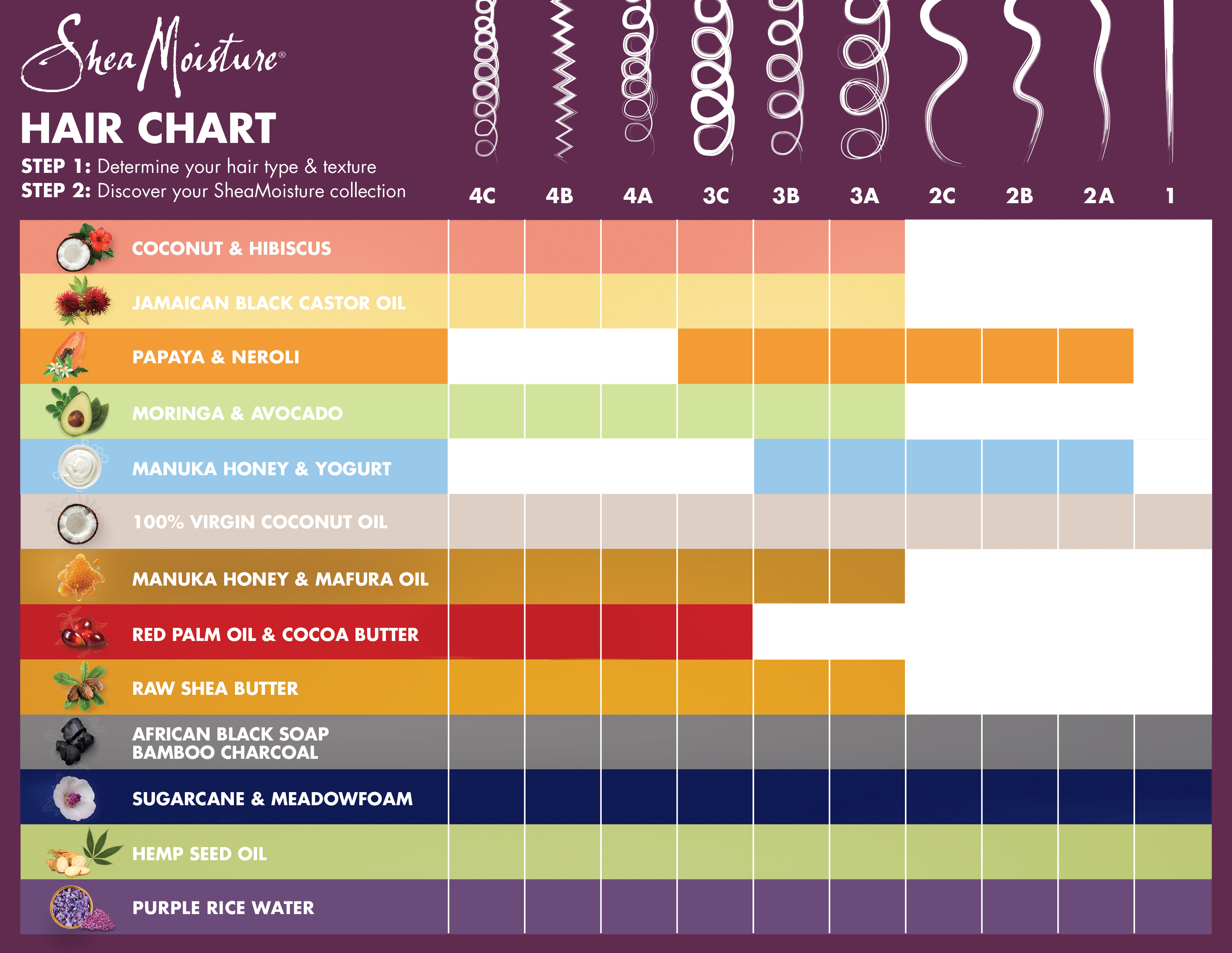Table Of Content

Coily hair is the more tight and defined sister of curly hair and features a range of “kinky-coily” patterns. Like type 3 hair, according to Ahmed, type 4 is prone to dryness and requires a focus on hair health and moisture. Ahmed again recommends clarifying treatments and tools like Denman brushes and tangle teezers, in addition to ultra-moisturizing products and styling gels. Type 4 hair, also known as coils or kinky hair, is characterized by tightly coiled and tightly packed curls.
Andre Walker Hair Typing System
Hair typing is a real and widely used system in the hair care industry. It is used as a tool to categorize and describe the different textures and types of hair, such as straight, wavy, curly, and coily. However, hair typing is not scientific or exact, and some people have criticized the system for promoting hair texture stereotypes.
What are Custom Hair Care Products & Are They Worth the Money?
The best way to style your curl type is to hydrate, define, and set them. Use a moisturizing product suitable for your curl type, followed by a curl defining cream or gel. Allow hair to air-dry or use a diffuser for volume, preserving natural curl pattern. To choose products for your curl type, consider its specific needs. Fine or loose curls benefit from light, volumizing products like mousses.
Hair Type Chart: What’s Your Hair Type?
If you’re blessed with kinky tresses, remember they require a bit more TLC compared to other types. Regular conditioning treatments are essential, along with gentle detangling methods. About once every six weeks cut off any split ends to keep your curls looking full and healthy. You can even go a step further with classifications within each group depending on how pronounced your curls are, like Type 3A for loose curls or Type 3B for tighter ones.

Effective Shampoos for Straight Hair that Add Body and Shine
The ends of the hair shaft tend to have a more clearly defined pattern than the roots. Oil based and creamy products are not a good choice here; instead, go for mousses and gels that will help to define the waves and hair powder to add fullness to the roots. Type 4C tightly coiled strands are more fragile than any other pattern and have a very tight zig-zag shape that is sometimes indiscernible to the eye. This type of hair will also benefit from additional nourishment from hair creams and oils to keep ringlets plush to the touch and protected from moisture. We like GH Beauty Award winner Suave Curl Defining Hair Cream that effectively prevented frizz and softened without a crunchy feel. Also, if you do decide to straighten your hair, you’re going to need extra protection to keep from damaging your curl pattern.

To care for Type 4c hair, use slippery moisturizing products to help with the detangling process and provide hydration. For styling, a stronger hold product like a curl-defining custard or gelee can stretch the coil safely for twist-outs and braid-outs. Type 2b curls are wavy and have a slight frizz on the crown of the head. These curls are bendable and can be fine to coarse, with a definitive S pattern that lays closer to the head.
For waves, Breyer loves a tousled look achieved by diffusing while the hair is almost dry. And if you're still stuck, Bailey has a slightly different tip. She recommends examining your curls while they're wet—the texture will be evident. "You may have more than one texture in your hair, which is common," she says.
12 Best Hair Conditioners for Men 2024: Best Men's Conditioners - Men's Health
12 Best Hair Conditioners for Men 2024: Best Men's Conditioners.
Posted: Tue, 23 Jan 2024 08:00:00 GMT [source]
I'm Simone, a beauty expert but mostly just a huge lover of everything makeup, skincare, fragrances etc. As we delve deeper into the world of permanent changes – things get trickier. Chemical treatments such as perms or relaxers can alter your hair structure more long-term, but they come with risks.
Type 3: Curly Hair
Type 2C waves are usually identified as small to medium size waves that form into a letter S shape as they grow. Though for some this may already look like a typical curly hair, the 2C type does not form springs, a distinguishing feature between waves and curls. Type 4A hair is coily; a toothpick can fit inside of your curl loop. These curls start to get more shrinkage as they tend to wrap around themselves, or they can be more elongated. Either way, moisture and hydration are paramount to keeping your coils looking and feeling their best.
Before we get into the breakdown of the nine different types of curls, it helps to know three key terms that’ll have an effect on how well products will work for your hair. In theory, figuring out your curl type (or curl types) sounds like an easy exercise. But as anyone who’s ever tried a curl product with rave reviews—only to have their expectations literally fall flat—knows, the reality isn’t so simple. "Use styling creams or puddings that moisturize. Deep condition at least once a week to try to help retain elasticity and moisture," says Breyer of this curl type. "Hair typing is a starting point, an easy way to start wading through the many product and styling options," says Breyer.
Type 4A hair has a defined curl pattern with a tight coil, while Type 4B hair has a less defined curl pattern with a more zig-zag shape. Type 4C hair is the most densely packed, with a very tight and coiled pattern that can be difficult to manage. When washing Type 3 hair, it’s important to use a moisturizing shampoo and conditioner to prevent dryness and breakage.
"I created these hair texture shapes because my clients told me that they found texture typing charts confusing. For those with Type 4 curls, Breyer recommends using a creamy humectant as a leave-in treatment to try to maximize protection and moisture. A curl-defining custard or gelee can stretch the coil safely for twist-outs and braid-outs. After washing, use a liberal amount of leave-in moisturizer, such as the Bread Beauty Hair Cream to add even more moisture. Castor oil is also a great hydrator and sealant for this very dry texture; we like the SheaMoisture 100% Pure Jamaican Black Castor Oil.

No comments:
Post a Comment